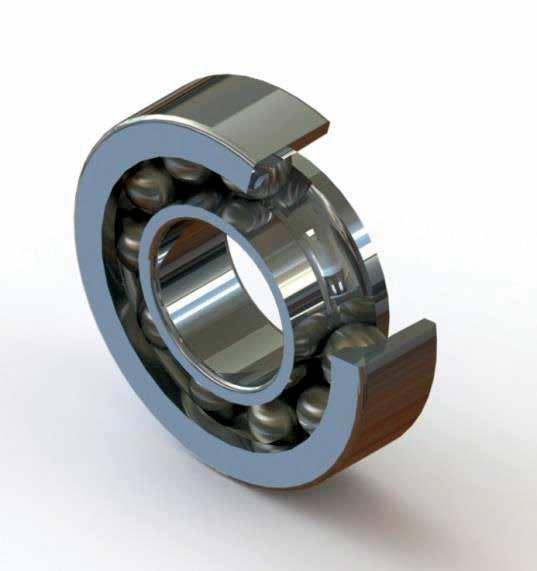
8 minute read
HARD ROLLING FOR INCREASING THE STRENGTH OF FUNCTIONAL SURFACES SUBJECTED TO ROLLING LOADS
As part of a funded project, HEGENSCHEIDT-MFD GmbH has developed a hard rolling process in close cooperation with research institutes, rolling bearing manufacturers and metallography companies. Through the use of the associated machin-ing concepts and tool variants, residual compressive stresses are induced in the running surfaces of the bearing rings, which results not only in hardening and smoothing, but also in a demonstrable increase in the service life of rolling bearing raceways in particular. HE-GENSCHEIDT-MFD GmbH, a medium-sized mechanical engineering company within the NILES-SIMMONS-HE-GENSCHEIDT Group (NSH) with an international focus, has been engaged for many decades in the smooth and deep rolling and roll straightening of rotationally sym-metrical components.
1. Introduction
Advertisement
HEGENSCHEIDT-MFD GmbH demonstrated in the three-year research project “Hard rolling of bearing rings” (funding code EFRE-0800344) in close cooperation with other project partners that the bearing rings of anti-friction bearings achieve a significantly longer service life as a result of the process sequence of hard turning and hard rolling with a hard rolling process that had been specially adapted for this purpose.
Compared with the conventional process chain for hard machining, hard rolling therefore offers a resource-saving and cost-effective alternative. The longer service life of the bearings contrib-utes to a further increase in efficiency and therefore reduces the costs not only for the manu-facturer, but also for the user. This may be the avoidance of early breakdowns of production machines or the extension of maintenance intervals, for example in the energy supply field.
From tool and process development to the finished anti-friction bearing, all of the necessary skills were available within the project consortium.
Determination of the process requirements was followed by the iterative development of the rolling tools and process parameters, with this being followed in turn by trials on analogue and real components. Hard rolling is a forming production process in which hardened areas of components are plas-ticised and shaped by means of a rolling element in the contact area. The aim is both work hardening and the introduction of residual compressive stresses into the border zone, as well as the smoothing of the surface, which results in an increase in the service life of functional surfaces that are subjected to rolling loads.
The advantages of the hard rolling process lie in its cost-effectiveness and resource efficiency, as it can be easily integrated into existing production lines with a short machining time and low energy requirements.
The high variance in the specially adapted rolling tools and process parameters also enable the machining of a large number of different anti-friction bearing variants. There are currently only isolated approaches to using the process for antifriction bearings, although the anti-friction bearing industry offers a high application potential for the use of hard rolling. Anti-friction bearings are among the most frequently used machine elements and often have a significant influence on the operating behaviour and service life of production machines and systems.
2. Motivation
The process is shown schematically in the image below. The rolling element generates a contact pressure due to the normal force, which leads to plastic forming of the workpiece surface and levels the roughness profile, as well as inducing additional residual compressive stresses in the border zone.
It has been demonstrated in several different studies that such residual compressive stresses increase the service life of anti-friction bearings. The residual compressive stresses counteract the progress of cracks in the rolling contact and therefore contribute to an increase in the re-sistance to surface disintegration and an improvement in rolling-contact stability. The smooth-ing of the surface counteracts any insufficient lubrication. The induction of residual compressive stresses in bearing rings requires the development of a new tool concept, as none of the existing ones offers accessibility of the tool.
3. Rolling Process and Tool Development
For the hard rolling process, HEGENSCHEIDT-MFD has developed a suitable variable tool that is used in the feed rolling process. Relatively small rolling elements are used for this. The contour of the bearing ring is traced with the rolling element using a defined feed rate. In this way, the usual raceway contours can be machined very flexibly.
The force-based support in several spatial axes, as well as the variable tool design, enable the machining of a wide range of designs of inner and outer rings. The robust and durable mechanical design of the rolling element bearing does not require any additional media. Furthermore, it is possible to monitor the process by means of interfaces and thereby carry out a resource-saving adaptation of the machining task.
4. Experimental Investigation
The first investigations were carried out on axial washers as simple test specimens, which ena-bled a high level of reproducibility and therefore comparability of the machining.
The characterisation process comprised features such as the geometry, surface quality and shape and position tolerances on the one hand, and boundary zone properties such as residual stresses and a hardness profile on the other. On the basis of the analogue components it was shown that induced residual compressive stresses lead to a significant increase in the service life.

— Schematic representation of the hard rolling process

— Distribution of the lubricating film with different surface characteristics
5. Service Life Investigations
The results of trials with real anti-friction bearings are shown in the following image.
If the results of standard hard-turned samples are taken as a reference to 1, the hard rolling process results in an increase in the service life by a factor of 3.2 according to the current status.
6. Rolling Results
Example of a clearly identifiable improvement in the surface roughness levels:
The measurement report shows that the bearing raceways are uniformly well smoothed, which also includes the uniform generation of the residual compressive stresses.
The generated contour accuracy corresponds to the common requirements of the anti-friction bearing industry.
7. Potential Workpieces
In principle, hard rolling with the newly developed tool base and the tool variants derived from it can be used for all rolling bearing raceways. Also for linear bearings and guides, as well as ball caster units and the like.
Furthermore, it can provide significant performance improvements for more complex struc-tural units with integrated rolling element raceways and for the components which are treated accordingly.
8. Summary
Although the benefits of the surface rolling of bearing raceways have been demonstrated sev-eral times in various studies, they have not yet been implemented as standard because suitable process and tool concepts for the machining of typical bearing geometries have been lacking up to now. The hard rolling process developed by HEGENSCHEIDT-MFD for rolling bearing race-ways closes this gap. The variable design options enable its application in a large number of different types of antifriction bearing units.
The integrated interfaces for process monitoring, as well as the robust and durable design of the rolling element bearing, ensure the precise positioning of the required rolling forces. The trials carried out so far have shown both high machining qualities and very good values for the increase in the service life.
Several projects are currently underway with different partners to prove the suitability of the process for series production.
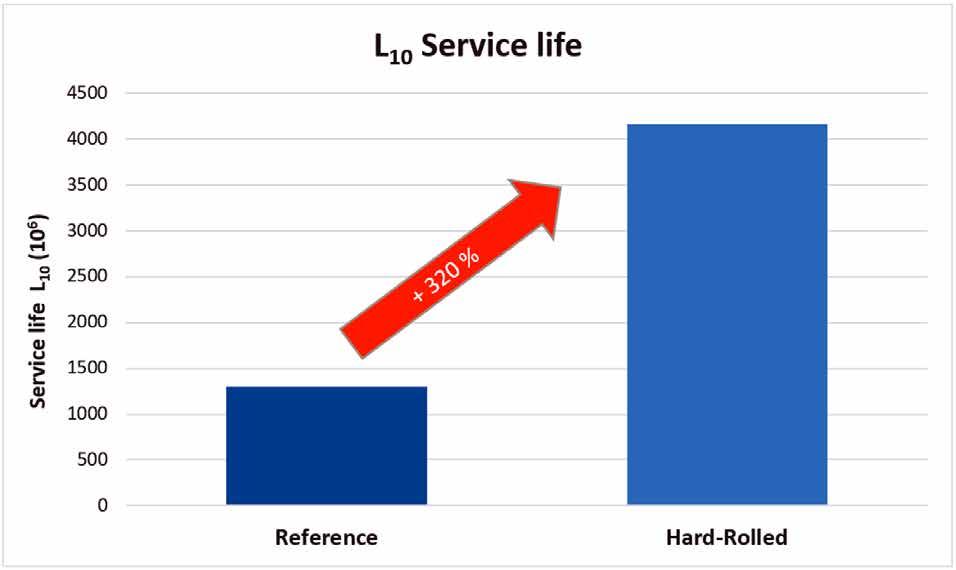
— Increase in the service life of hard-rolled anti-friction bearing rings
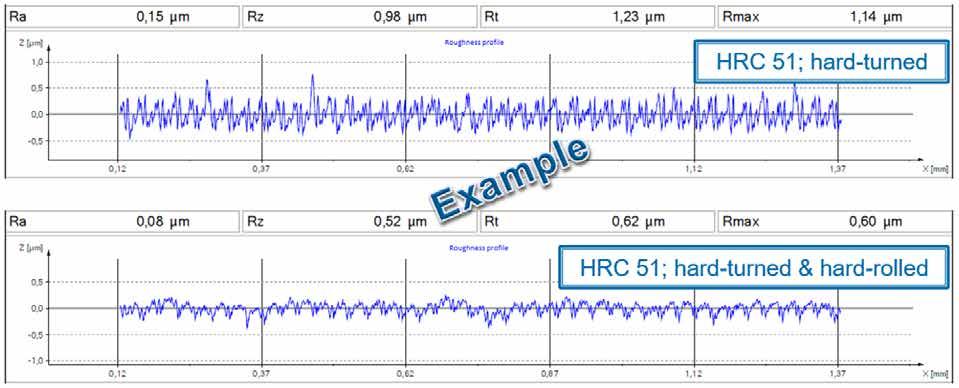
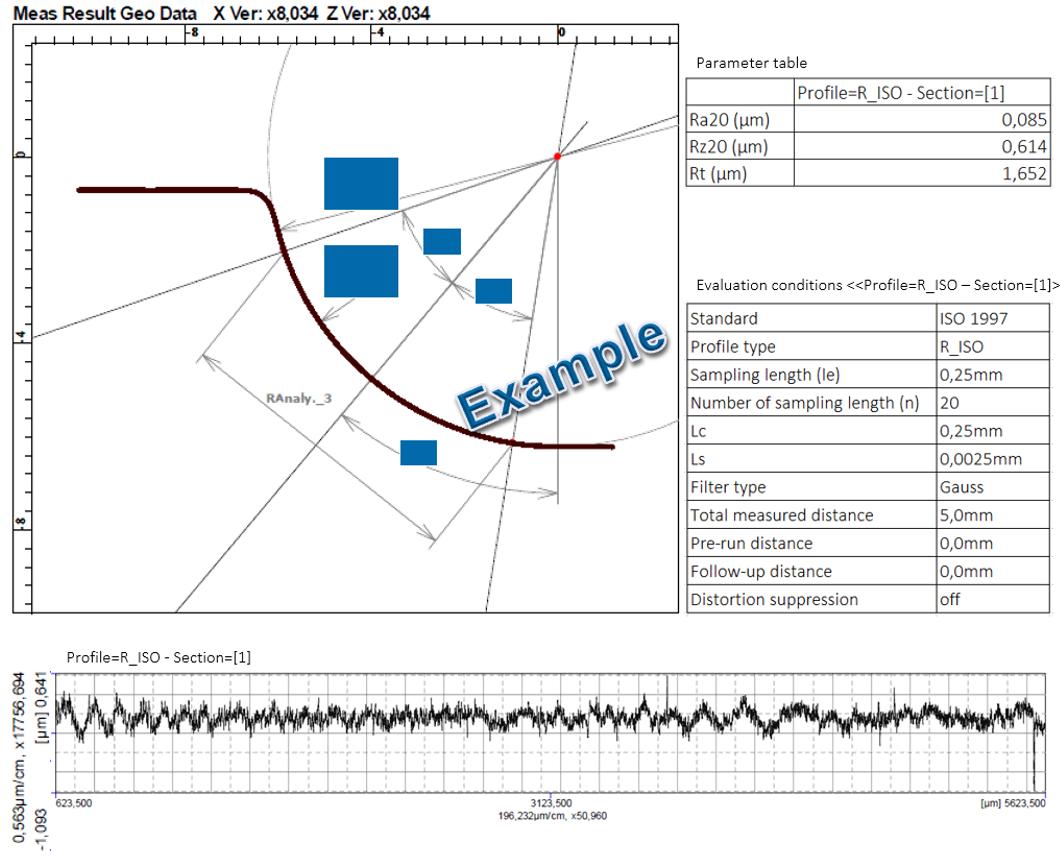
For more information about HEGENSCHEIDT-MFD GmbH visit www.nshgroup.com
Salim Haffar newly re-elected President at EUROTRANS

The EUROTRANS announced the reelection of Mr. Haffar Salim as president of their organization during the International Drive Conference that took place online the 17th November. In front of a panel of professionals and associations members from more than 30 countries, Mr. Haffar presented the work achieved in the last two years and the strategy for future.
Mr. Andre Thuswaldner (President of SWISSMEM) also got reelected as vice-president of the EUROTRANS.
The organization announced the dates for the next International Drive Conference, that will take place in Germany during Hannover Messe. The conference will be held on the 19th April 2023.
Celebrating it’s 50 years In 2019, the COMITÉ EUROPÉEN DES ASSOCIATIONS DE CONSTRUCTEURS D'ENGRENAGES ET D'ÉLÉMENTS DE TRANSMISSION (EUROTRANS) is an organization that represents the interests of the European power transmission industry. It informs and supports more than 600 enterprises within Europe, which accounts for an annual production of more than 40 billion Euro.
Europe remain the leading region worldwide in terms of innovation and experience in the power Transmission sector. Companies in this industry employ no less than 160,000 people. Consequently, EUROTRANS takes its task of representing these people and enterprises, in line with national needs, very seriously. The European platform for the Gears and Transmissions sector, has also developed an extensive and all-encompassing modular Gear Training Program. This program has been running since 2010 and is organized in three European countries: Belgium, Germany and the UK. Meanwhile 19 trainings were organized with over 300 participants. Provided by top gear trainers, the training covers every possible aspect in their domain - from geometry and design, through production, to quality control and failure analysis. As a member of the EUROTRANS, the MIB is currently working on adding Turkiye to the list of hosting countries for this high-level training sessions.

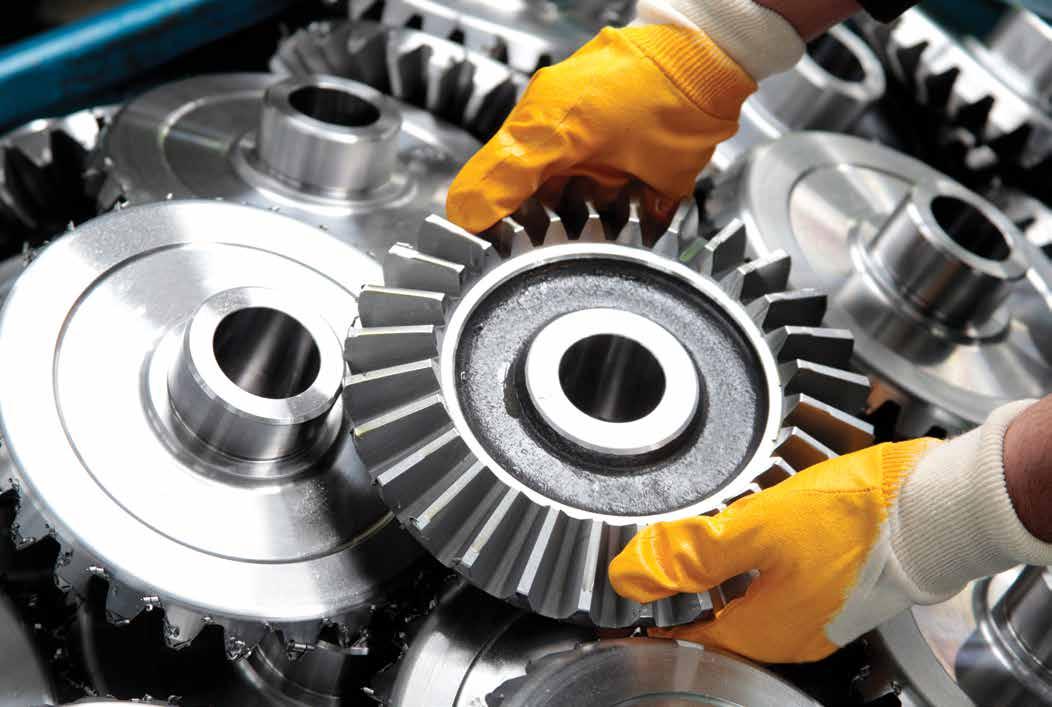
More information about the organization can be found at www.euro-trans.org.
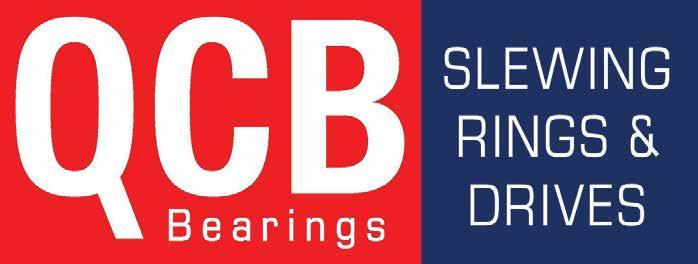
Slewing rings Slewing drives Special designs Pinions, Motors and Gearboxes

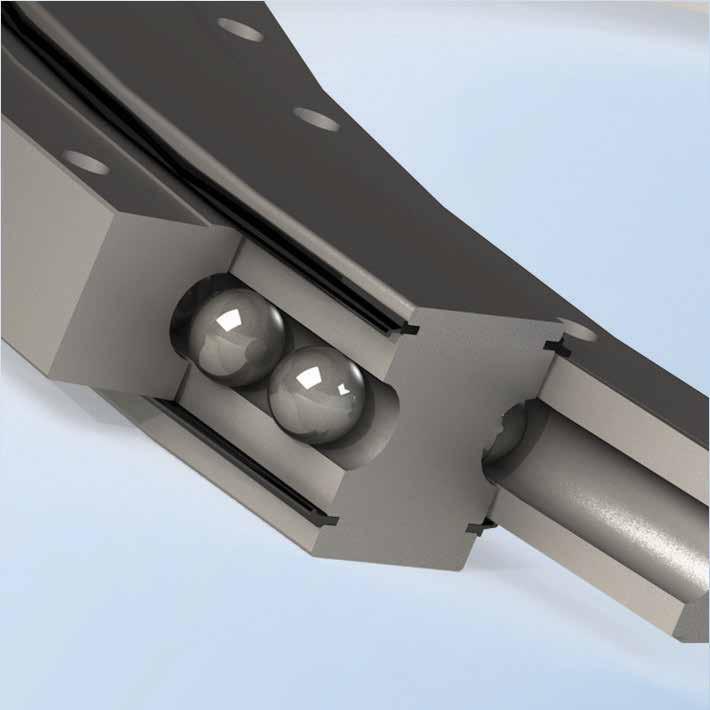

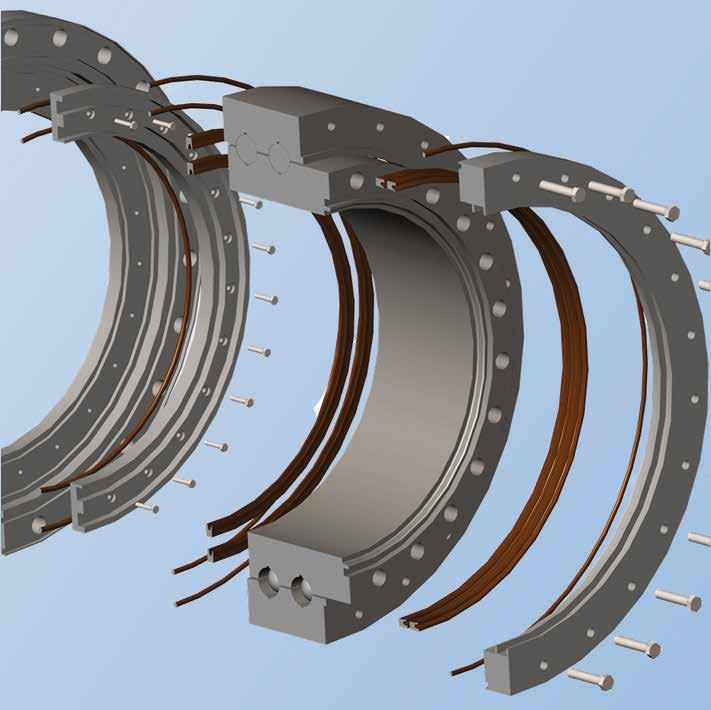
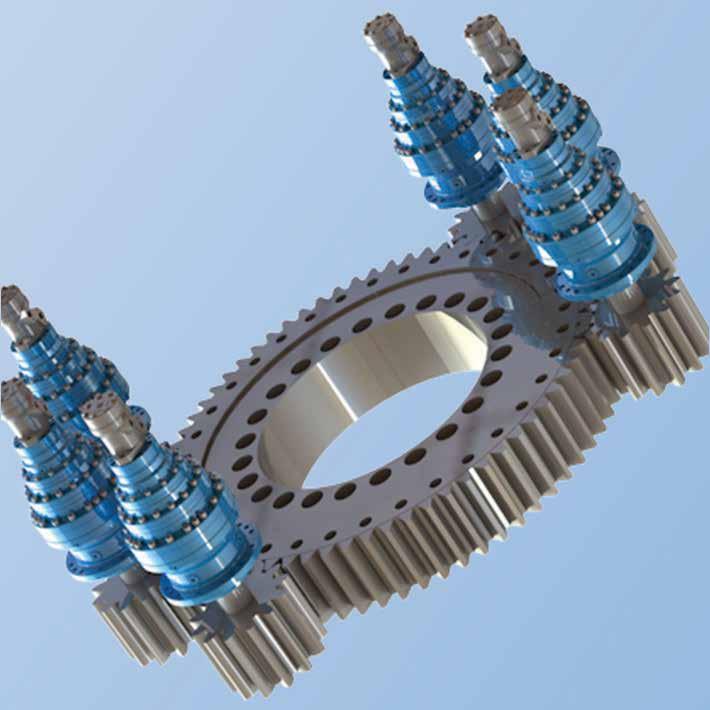

Broadest range of stock sizes held in the UK Qualified and experienced technical support—no enquiry too small Unique and innovative designs for special projects Agents in Canada, Brazil, South Africa and China— Exported worldwide QCB also manufacture bearings, housings, agri‐hubs and plastic bearings







